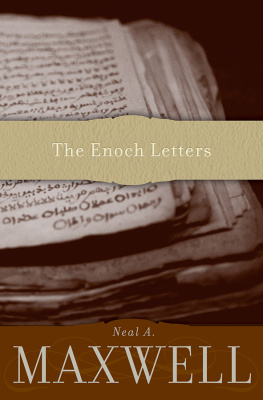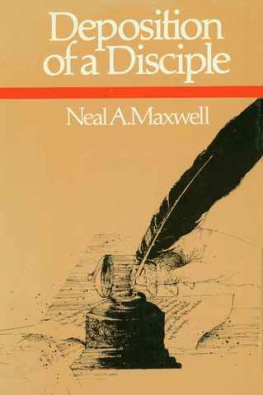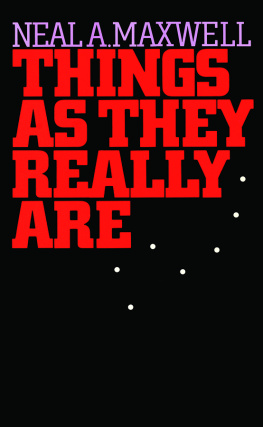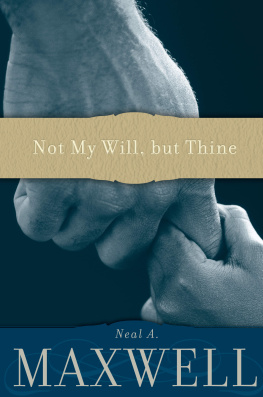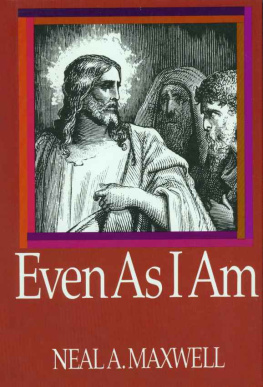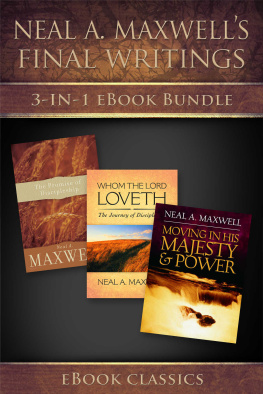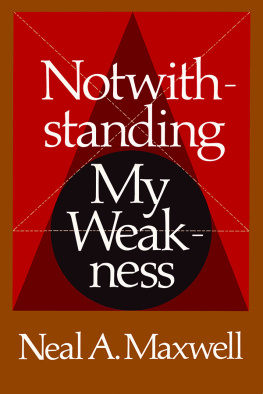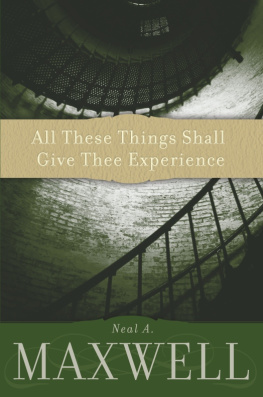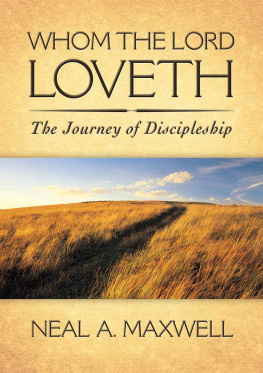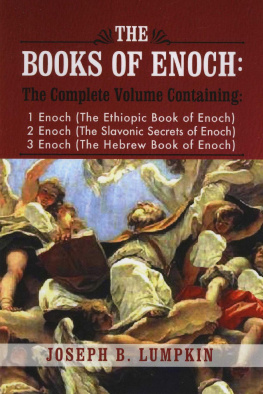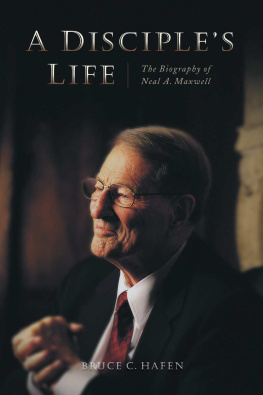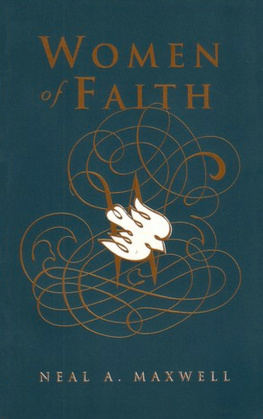To Enoch,
Whose faith moved not only mountains, but, more importantly, men; and to his successful people for showing us that it can be done: that lapsed righteousness is not inevitable and that nearcelestial culture can be transmitted from generation to generation; and with anticipation of that remarkable rendezvous when this prophet and his people return.
And the Lord said unto Enoch: Then shalt thou and all thy city meet them there, and we will receive them into our bosom, and they shall see us; and we will fall upon their necks, and they shall fall upon our necks, and we will kiss each other;
And there shall be mine abode, and it shall be Zion, which shall come forth out of all the creations which I have made; and for the space of a thousand years the earth shall rest. (Moses 7:6364.)
Acknowledgments
Genuine appreciation is expressed to:
William James Mortimer for encouraging this enterprise; Dallin H. Oaks, Kenneth H. Beesley, Elizabeth Haglund, Jeffrey Holland, Oscar W. McConkie, Jr., and Ellis Rasmussen for reading and sharing their suggestions;
Arthur Henry King for wise counsel concerning style and the milieu out of which Mahijah might have written;
Dean Zimmerman for providing me with quotations from General Authorities concerning the City of Zion, which should be of service to readers;
Eleanor Knowles for her careful editing;
Mahijah for lending his name (Moses 6:40);
My family for fresh forbearance;
The reader for his willingness to blow the chaff away, forgivingly, while searching for any kernels herein; and
Most of all, the Lord for such kernels as there may be.
Introduction
Just as the disappearance of Sodom and its sister cities was unprecedented, so was the translationor removal heavenwardof the city of Enoch centuries before Sodom. The Old and New Testaments (from Genesis to Jude) and, more generously, modern scriptures confirm the existence of the city of Enoch.
A confluence of conditions and characteristics led to the disintegration of Sodom, for Sodom was not just a place, but a way of life. A confluence of sharply different conditions and characteristics created the sublime city-culture of Enoch.
Countless secular and sectarian utopian schemes have been stillborn or have soon gone awry, but, significantly, a sustained Christ-centered society did exist, and it is a true story that cries out to be told.
There are several relevant reasons for attempting to ponder probingly the city of Enoch. First, in our time of increasing perplexity among nations and individual despair, it is important to realize that thousands of people ages ago successfully applied the commandments of God and thereby had great and unparalleled happiness. Second, since God sets both incentives and warnings before mankind, it is just as important to have before us the positive consequences of righteousness as well as the negative consequences of sin. Third, God preserved and prepared Enochs people in the midst of awful and enveloping evil, and, reassuringly, he has promised his people in our own time that though great tribulations shall be among the children of men,... my people will I preserve. (Moses 7:61.) The Lord has also said that the day will come when peace shall be taken from the earth, and the devil shall have power over his dominion. And also the Lord shall have power over his saints, and shall reign in their midst.... (D&C 1:3536.) Fourth, the pending rendezvous between the people of Enochs city-culture and those to be preserved on the earth at the time of Christs second coming will be utterly unique in all of human history and is worthy of some quiet anticipation.
First, it was Enoch aloneexcept for his heavenly helpers. Then a handful of humans joined him. Soon there was a colony. Then a city!
There appear to be no new or complex doctrines that would account for the unique outcome in the city of Enoch. One will look in vain in the scriptures for a single spectacular teaching that accounts for this singular and spectacular event. Clearly, what made these people unique was their serious and steady application of the simple teachings of Jesus Christ. That is the great message that this book aims at underscoring.
The device chosenimaginary communications from Mahijah (Moses 6:40) to his imaginary friend Omner permits some literary flexibility. The basic information about this remarkable city-culture is derived from scriptures, ancient and modern. Selected statements by modern Church leaders about the city of Enoch are found in Appendix B.
Quotation marks that would normally entwine excerpts from scriptures emerging after Enochs time are omitted to ease the passage of the eye and to blend with the intimate conversational tone intended.
The literary register of these communications is unlike the style used in the companion booklet, Look Back at Sodom. This book assumes too that only some of Mahijahs imaginary communications (sent from inside the city of Enoch to Omner on the outside) survived, giving us only a glimpse of the gradual glory that came to the city of Enoch. There is one unexplained but lengthy gap of many years when Omner does not appear to encourage Mahijahs further communications.
The author assumes that all but one of Omners communications to Mahijah stayed with Mahijah and were thus lost to this world, though Mahijah makes reference to some of Omners concerns and comments.
While the author has tried diligently not to go beyond what we find about the city of Enoch in scriptures or in the utterances of modern prophets, imaginary communications, of necessity, create the possibility of misunderstanding unless the reader is prayerful, careful, and discerning.
The reader may also need some fresh familiarity with the actual scriptures about the city of Enoch. For this purpose the serious reader should read, or reread, chapters 6, 7, and 8 of Moses before reading this booklet. (A synopsis of these chapters is provided in Appendix A.)
Also, since Enoch and his people were good enough to be translated, the author assumes they were at least as good as were the Nephites of A.D. 36111. Therefore, the Nephites positive characteristics and traits as described in Fourth Nephi are woven into this account. (A synopsis of that book is in Appendix C.)
Finally, since the residue of the inhabitants of the earth in Enochs time were regarded by God as the most wicked among all his creations, the author assumes those outside the city of Enoch were at least as bad as were the Nephites of A.D. 400421. (See Moroni 9.) Therefore, use is also made of comparative negative characteristics and traits in certain of the imaginary communications.
Translation is not a literal resurrection, but a specific change whereby those selected do not taste of death. Later they will be changed in a twinkling of an eye from mortality to immortality. (3 Nephi 28.)
The author is assuming, happily, that when the real Mahijah questioned Enoch, it was not a casual question nor an effort to entrap. The question might have sprung from Mahijahs desire to know more about Enoch. If so, Mahijahs soul would have quickened at the response, a foreshadowing of his being drawn even closer to Enoch.
The lone exception, a letter from Omner, was never finished nor sent for reasons shown later.
The Enoch Letters
My Honored Friend Omner, Greetings!
Since seeing you last, I have thought often of how much I cherish our conversations. I know of your restless desire to be ever apprised of the latest happenings, but first, my friend, I hope this epistle finds all well in the land of Omner and that your crops progress toward a bounteous harvest.

